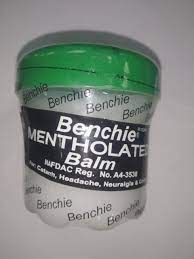
A balm, in its simplest form, is a semi-solid substance made from a combination of natural ingredients. It typically contains oils, waxes, and various therapeutic components that work synergistically to provide relief, protection, and healing benefits to the skin or other affected areas of the body.
Balms have been used for centuries in traditional medicine and skincare practices across different cultures.
Balms consist of a carefully curated blend of ingredients, each chosen for its specific benefits. Common ingredients found in balms include natural oils such as coconut oil, olive oil, jojoba oil, or almond oil, which provide deep hydration and nourishment to the skin.
Beeswax or shea butter is often added to balms for their emollient and protective properties. These ingredients create a semi-solid texture that melts upon contact with the skin, allowing for easy application and absorption.
Additionally, balms can contain a range of therapeutic components such as essential oils, herbal extracts, or vitamins. Essential oils like lavender, tea tree, or eucalyptus are known for their calming, antiseptic, or anti-inflammatory properties.
Herbal extracts like chamomile, calendula, or arnica have soothing and healing effects on the skin. Vitamins, such as vitamin E, provide antioxidant benefits, promoting skin rejuvenation and protection against environmental damage.
Balms offer a multitude of uses and can be employed for various purposes. Some of the most common applications include:
Skincare: Balms act as intensive moisturizers, soothing dry or chapped skin. They can be applied to areas prone to roughness, such as elbows, knees, and heels, to provide deep hydration and promote softness.
Lip Care: Lip balms are specifically designed to nourish and protect the delicate skin on the lips. They help prevent dryness, cracking, and chapping, providing a smooth and supple appearance.
Muscle and Joint Relief: Balms infused with ingredients like menthol, camphor, or arnica are excellent for relieving muscle soreness, stiffness, and joint discomfort. They are commonly used before or after physical activities to enhance recovery.
Minor Skin Irritations: Balms containing soothing ingredients like aloe vera or chamomile are effective in alleviating minor skin irritations, such as insect bites, rashes, or sunburns.
Aromatherapy: Some balms are infused with essential oils known for their calming or uplifting properties. They can be used as a natural alternative for stress relief, relaxation, or promoting sleep.
The production of balms, also known as ointments or topical creams, is a lucrative business opportunity in Nigeria. Balms are widely used for medicinal and cosmetic purposes, offering relief from various ailments and providing skincare benefits.
This article aims to provide a step-by-step guide on starting a balm production business in Nigeria, including market analysis, regulatory requirements, production process, branding, and marketing strategies.
Market Analysis
Before venturing into any business, conducting a thorough market analysis is crucial. In the case of balm production, it is important to identify the target market, competitors, and consumer preferences. Here are a few key points to consider:
Identify the Target Market: Determine the specific segment of the market you wish to cater to. This could include consumers seeking relief from joint pain, muscle soreness, skin irritations, or those interested in natural and organic skincare products.
Competition Analysis: Research existing balm producers in Nigeria to understand their product offerings, pricing strategies, and distribution channels. Identify any gaps in the market that you can fulfill with your unique selling proposition.
Consumer Preferences: Understand the preferences and needs of your target market. Conduct surveys or interviews to gain insights into the types of ingredients, fragrances, and packaging that appeal to potential customers.
Regulatory Requirements
Compliance with regulatory requirements is essential to ensure the safety and quality of your balm products. Here are the key steps to follow:
Business Registration: Register your balm production business with the Corporate Affairs Commission (CAC) in Nigeria. This will give your business legal recognition.
Product Registration: Apply for product registration with the National Agency for Food and Drug Administration and Control (NAFDAC). This ensures that your balms meet the required quality standards and are safe for consumer use.
Good Manufacturing Practices (GMP): Implement GMP guidelines to maintain cleanliness, hygiene, and quality control throughout your production process. This includes proper storage of raw materials, standardized production procedures, and regular quality checks.
Production Process
Developing a streamlined production process is essential for consistent quality and efficiency. Here are the key steps involved in balm production:
Recipe Formulation: Research and experiment with different ingredients, such as herbs, essential oils, carrier oils, and waxes, to formulate a unique recipe for your balm. Consider the desired therapeutic properties and fragrance while formulating.
Ingredient Procurement: Source high-quality raw materials from reliable suppliers. Ensure that the ingredients are organic and free from contaminants.
Mixing and Heating: Follow the recipe to measure and mix the ingredients. Heat the mixture using a double boiler or controlled heating equipment to ensure proper blending and sterilization.
Cooling and Packaging: Allow the mixture to cool and solidify. Once solidified, transfer the balm into suitable containers, such as jars or tubes, and label them appropriately with the product name, ingredients, and expiry date.
Branding and Marketing
Effective branding and marketing strategies play a vital role in attracting customers and building a loyal customer base. Consider the following steps:
Brand Identity: Develop a unique brand name, logo, and packaging design that reflects the essence of your balm products. Use colors and fonts that resonate with your target market.
Online Presence: Create a website and establish a strong social media presence to showcase your products, share informative content, and engage with potential customers. Utilize platforms like Instagram, Facebook, and Twitter to reach a wider audience.
Offline Marketing: Participate in trade shows, health fairs, and local markets to promote your balms. Offer product demonstrations, free samples, and attractive discounts to entice customers.
Partnerships: Collaborate with local spas, wellness centers, and retailers to expand your distribution network. Offer them competitive margins and provide training to their staff about the benefits and usage of your balms.
Starting a balm production business in Nigeria requires careful planning, compliance with regulatory requirements, and effective marketing strategies.
By conducting thorough market research, ensuring product quality and safety, and implementing branding and marketing techniques, you can establish a successful balm production venture.
Remember to stay updated with industry trends, listen to customer feedback, and continuously innovate to meet the changing needs of your target market. With determination and perseverance, your balm production business can flourish in Nigeria's thriving market.





















